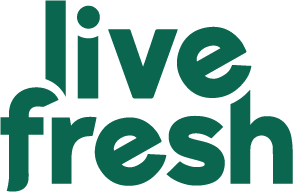Suchst Du nach einer Möglichkeit, eine bewusste Auszeit vom Alltag zu nehmen und Dich intensiver mit Ernährung und Routinen auseinanderzusetzen? Fastenkuren können eine Lösung für Dich sein. Sie erfordert jedoch eine gründliche Vorbereitung und Planung, um sicherzustellen, dass Dein Körper alle notwendigen Nährstoffe erhält und mögliche Risiken minimiert werden. In diesem Blogbeitrag werden wir uns mit verschiedenen Aspekten der Kur beschäftigen, einschließlich Gründen für eine Fastenkur, verschiedenen Methoden, wie beispielsweise dem Buchinger Fasten, aber auch der Vorbereitung, Durchführung und Beendigung mit Fastenbrechen sowie gesundheitlichen Vorteilen von Heilfasten. Lass uns also eintauchen in die Welt der Fastenkuren und herausfinden, ob es für Dich geeignet ist!
Definition, meaning and historical background of fasting cure
A fasting cure is a temporary period in which you abstain from food or drastically reduce your food intake in order to detoxify and regenerate. The cleanse can be carried out in various ways, for example through the abstaining from solid foodthe drinking water or juiceor through a change in diet. Cures are often carried out for religious, spiritual or health reasons and can usually last between one day, a few days and several weeks. The importance of the fasting cure lies in its ability to cleanse the body and mind and regulate the metabolism, resulting in a improved well-being and increased awareness awareness. However, many people use fasting above all juice cures to change their diet, as the feeling of hunger and satiety is more noticeable after fasting. It is therefore the ideal start to a successful diet. It can last several days, depending on your wishes and well-being.
The fasting cure has a long history and has been practiced for thousands of years. Historical records show that fasting people have been documented in various cultures such as Ancient Greece, Egypt, India and China. In many cultures and religions, fasting is seen as a spiritual practice to purify the body and mind and to establish a deeper connection to the divine. In Christianity, for example, Lent is seen as a time of renunciation and reflection in preparation for Easter. In Islam, fasting is practiced during Ramadan to emphasize purity of spirit and solidarity with the poor and needy.
In the modern medicine fasting has only been more intensively researched and recognized in recent decades. Today the cleanse is regarded as a form of alternative medicine and can be used for treatment of various diseases such as obesity, diabetes, high blood pressure and some chronic diseases.
Conclusion
Fasting cures can have many health, religious, spiritual and cultural reasons. have. There are various methods of fasting, including Water fasting, juice fasting, therapeutic fasting and intermittent fasting. A successful fasting period requires good preparation and support from exercise and relaxation. The reintroduction of food after the fasting cure with the breaking the fast also requires care. Medical follow-up care may be necessary.
It is advisable to consult a doctor before starting a fasting cure and to prepare mentally and physically by changing your diet. During the fasting period you should drink plenty of fluids and rest and relax and relaxation. It is important to reintroduce food slowly so as not to overtax the body.
Frequently asked questions about fasting cures:
How do I do a fasting cure?
Fasting can be done in different ways, depending on your personal preference and state of health. In general, a cleanse generally involves fasting from food for a certain period of time while the body is freed from absorbed toxins.
How to fast properly at home?
Fasting at home requires thorough planning to ensure that the body receives all the necessary nutrients. One way is to increase your intake of fresh fruit and vegetables, while reducing refined foods, alcohol and caffeinated drinks. It is also important to drink enough water and get enough sleep.
What is the healthiest fast?
The healthiest fast depends on individual needs and circumstances. However, intermittent fasting is a commonly recommended method where certain times of the day or week are spent without eating. Some research studies have shown that it can have positive effects on physical and mental health.
Why do you freeze when fasting?
Fasting can cause a decrease in metabolic rate, which can lead to a decrease in body temperature. In addition, a reduction in insulin production and an increase in the hormone noradrenaline can also contribute to feeling cold during fasting.
Why is the 3rd day of a fasting cure so important?
The third day of fasting is often seen as a crucial point, as this is when the body begins to switch to using fat reserves for energy. It is also believed that the third day is the time needed to fully detoxify the body. However, it is important to note that everyone's body is different and that the effects of a fasting diet can vary from person to person.
What is Buchinger therapeutic fasting?
Buchinger fasting is a form of therapeutic fasting in which solid food is avoided and vegetable broth, fruit juices and water are consumed instead. It is used to strengthen the immune system, detoxify the body and alleviate complaints such as headaches, high blood pressure or diabetes. Buchinger fasting can be seen as a form of nutrition that is practiced for a short period of time to give the body a break and cleanse it.
Das könnte dich auch interessieren








